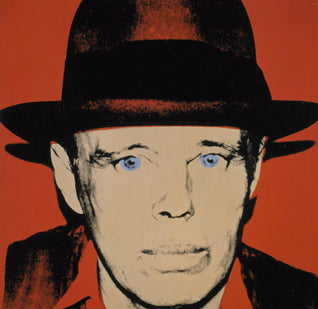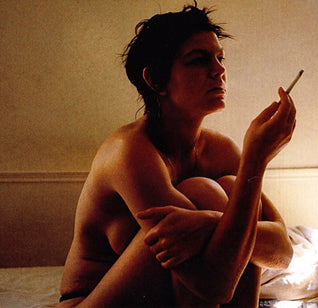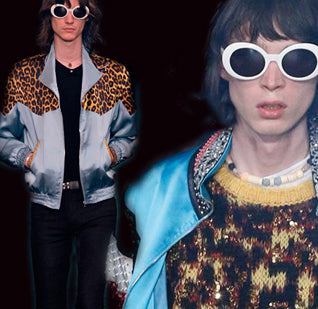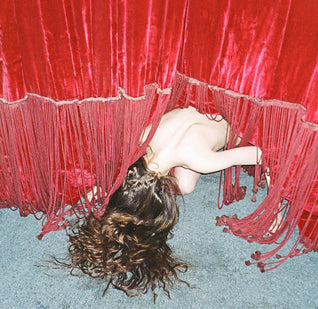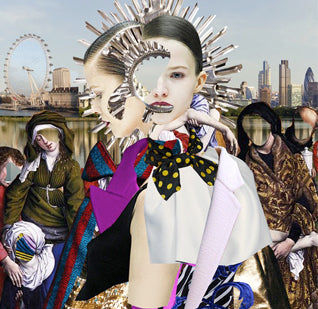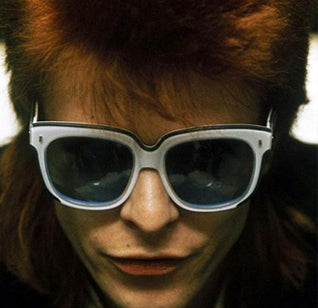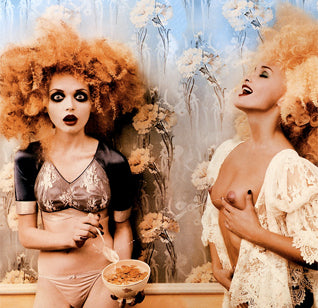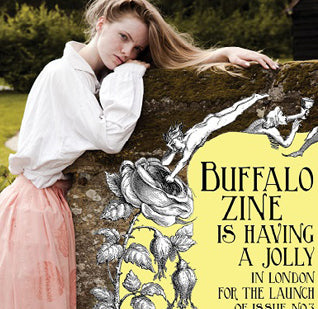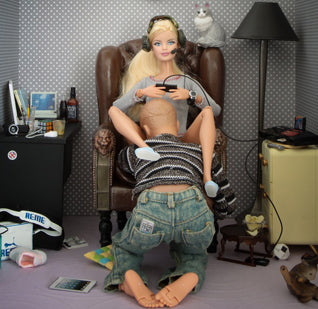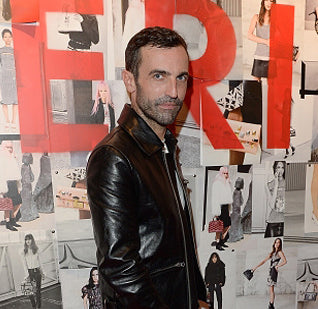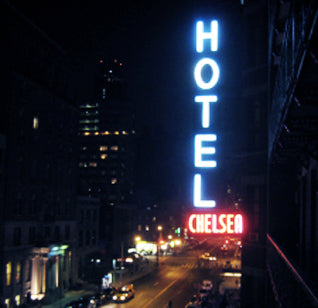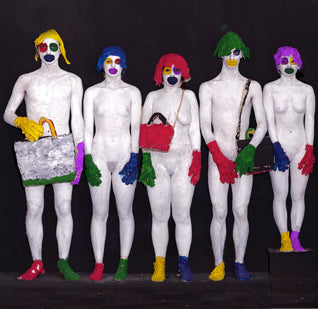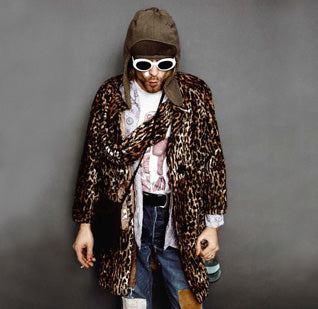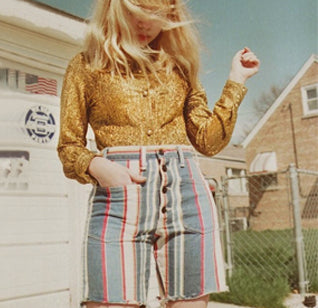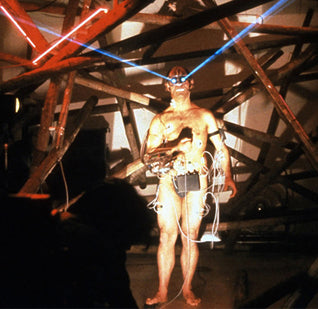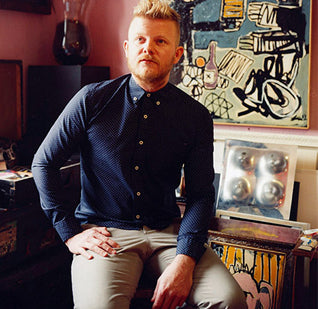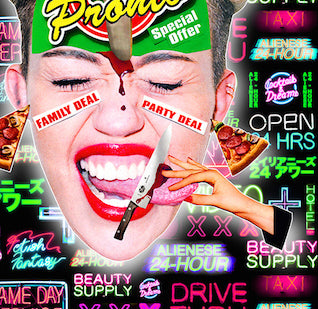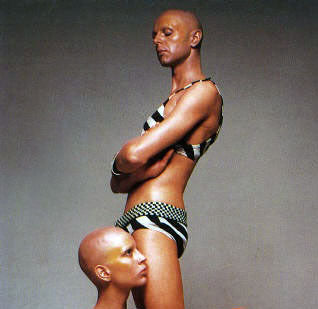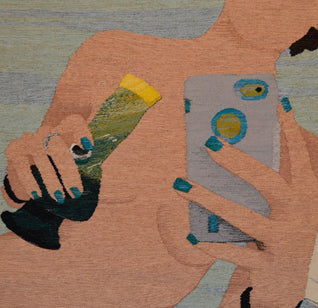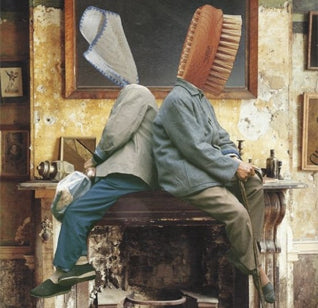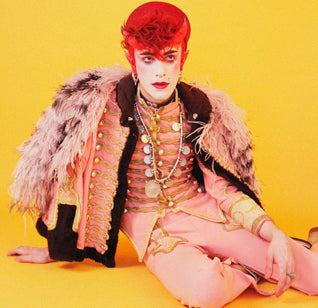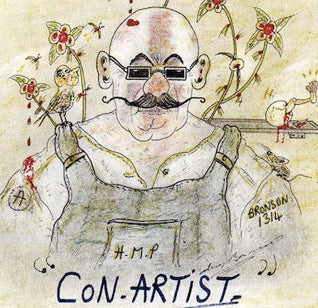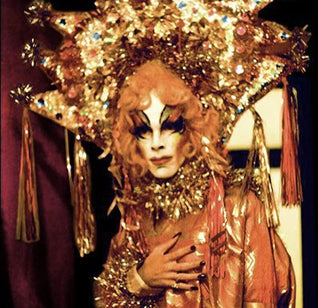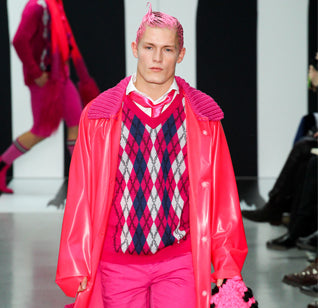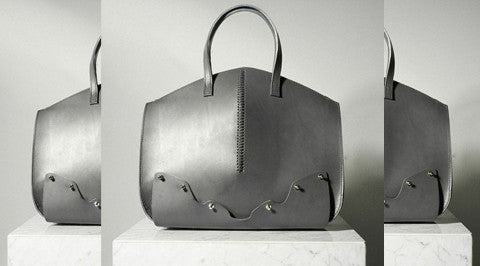DUNCAN SWANN: BEHIND THE MASK
The artist reveals how his alluring paintings confront the 'other'
by Ellie Howard
Duncan Swann’s paintings have a distinctly nostalgic feel; they recall a moment when time stood still. Inspired by vintage photographs and the ‘other’, Swann’s work combines a clever mix of rush and calculated precision, where nostalgia meets complexity in a timeless, yet contemporary fashion. To coincide with his latest exhibition at PLATFORM gallery, we caught up with the artist to to talk about his creative process and the mysterious quality that resides over his paintings:

Left: Photographic work, 2015 Right: Untitled (Smile), 2014
KOD: I’ve noticed that each work moves seamlessly inbetween the present, the past and the future. How does your artistic medium reflect this?
Duncan Swann: Time has always been a key theme within my work, years ago I did a lot of painting that was based on colonial themes. I thought that the subject matter re-occurred through time; that an image of a colonial hunter was a apt starting point for a critique of events that were occuring on the global political scene. I have since removed any external political subject matter from my work. The themes have become more existential over time.

Detail from Selected Outcomes, 2013
KOD: You almost attack your portraits with dark de-configurations that sprawl across the canvas’s vicinity and mask the portrait sitter, what purpose does this disruption serve for the viewer?
Duncan Swann: These paintings are an investigation into masking, concealment and the confrontation with the 'Other'. By luring in the gaze of the viewer, when the eye comes to rest on the work it is drawn to the black marks. At this point, the figure of becomes a screen concealing something behind it, and the marks appear as a negative space. As we look into this void it appears that the space is looking back. Because the viewer is excluded from the essential character of this look the painting begins to function as a mask, opening up the possibility that the true subject of the work is actually the viewer themselves.

Left: Untitled (Corporate), 2014 Right: Copy of untitled (Geisha II), 2014
KOD: The Geisha and the Greek Adonis frequently re-occur within your work, why is this?
Duncan Swann: I have always tended to work in series. The Geisha herself already wears a form of mask, as does the sitter for the corporate portrait. The latter borrows from classical portraiture, in which the painting is a substitute for the absent power figure. The Greek and Roman busts are a series apart. These works look at the notion of the gaze. By erasing the eyes it is as though these figures are reanimated and that that action of concealment gives birth to a gaze from which we are excluded but the presence of which is nonetheless felt. I think that the confrontation with otherness can lead to a sense of vertigo.

Detail from Works on Paper, 2013
KOD: ‘The Day We Climbed the Mountain’ provides a break in imagery from other works in this series, evoking a sentiment of nostalgia and the ideal: why is the presence of the ‘Other’ not imposing on this scene as with the profiles?
Duncan Swann: I was looking at the genre of history painting, which by its nature is always a versional reproduction of events. I was interested in whether, by adopting the syle of a history painting one might portray an event which could never have taken place, but would still be read as a depiciton of a real event.

The Day We Climbed the Mountain: We Never Climbed the Mountain, 2013
KOD: What is your personal relationship to the ‘other’, or do you feel that it is a relationship transcendent of the individual?
Duncan Swann: It does transcend the individual, in that masks exist thoughout almost all cultures in the world. The object of the amulet, the function of which is to absorb the malevolent power of the evil eye, is still very much in existence. I think if most people sit opposite someone wearing dark sunglasses for long enough, they begin to grow uncomfortable. They are aware of the look coming from behind the glass, but it is a look that they can't see. More in broader sense, because the figure behind the mask cannot be seen it invokes a relationship to that which cannot be known which is death. Such effects go beyond simple masks; the idea that the camera steals the soul for example, even celebrities probably see it as something which is essentially predatory.


View the full Duncan Swann collection, here








